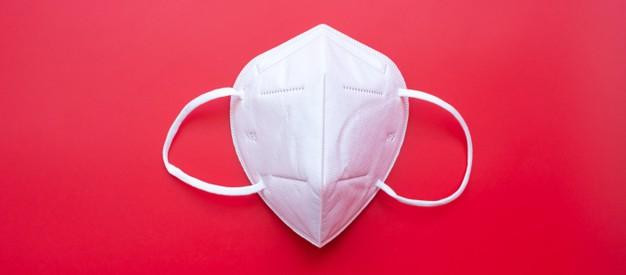A face mask must be worn to cover the nose and mouth when you shop or go out for work. Before you leave, make sure to check that your mask is still in place.
Your mask may have an external one-way respirator valve that is about the same size as an old rupee coin. This could mean you are barred from shops and stores, particularly in hospitals or clinics.
These valves are found on N95 respirator masks which make breathing easier. They are not permitted in hospitals right now.
What is an N95 Respirator Mask and how do you use it?
N95 mask may have a small piece of plastic embedded in the fabric. This is called a "one-way valve" and masks like it are also known as N95 respirator masks. It closes when you inhale, which prevents pathogens from getting inside your body. This valve opens when you exhale, allowing for air to escape the mask.
These masks are not safe
Experts warn the public to avoid wearing N95 respirator masks that have front valves. A mask with a one way valve means that most exhalations are unfiltered. The mask does not filter the breath going out. It's almost as if the air coming out of our mouths is an open-air exhaust. It's not good news for other people.
These one-way valves allow the virus to easily spread through their pores, even if there is no filter. These masks will only protect the wearer of the mask and not anyone else from possible exposure to virus particles exhaled.
Dr Sai Praveen Haranath from Apollo Hospitals says that masks may be doing more harm than good to prevent the spread of COVID-19. One-way valves on your face masks are dangerous and may even propel your germs.
He said, "Such valves permit droplet escape from the mask, putting others in danger,"
"In times of need, 'your face should protect me and mine should protect you; masks that have a valve practically makes it impossible," says Dr Sai Praveen.
Which masks should be preferred?
The World Health Organization (WHO), recommends surgical masks to sanitation workers and health care workers not directly involved with managing COVID-19 patients. These masks create a protective barrier around the nose and mouth, but should be thrown away after one use. Another option is to make your own masks, preferably from cotton fabric. These can be reused after washing.
Cloth masks are recommended for healthy people who go out. They will protect against larger droplets and prevent them from being exposed to the elements.
Stole and handkerchiefs should be avoided. They have too many leak points. Dr Sai Praveen says that such face covers (handkerchiefs and stoles) can only provide psychological relief if the person is aware of the need to be cautious.
He says that masks can only be made from cotton fabric. Apart from being virus-friendly, cotton is also a breathable material. It does not trap heat or humidity as much. It is unlikely that a cotton-made mask will get wet. We have to replace any mask that gets wet. Avoid nylon masks, as they are not useful." Dr Sai Praveen said.
Conclusion:
If you don't maintain physical distance (at least six feet from others), cough etiquette, and hand hygiene, face masks won't provide 100% protection.

